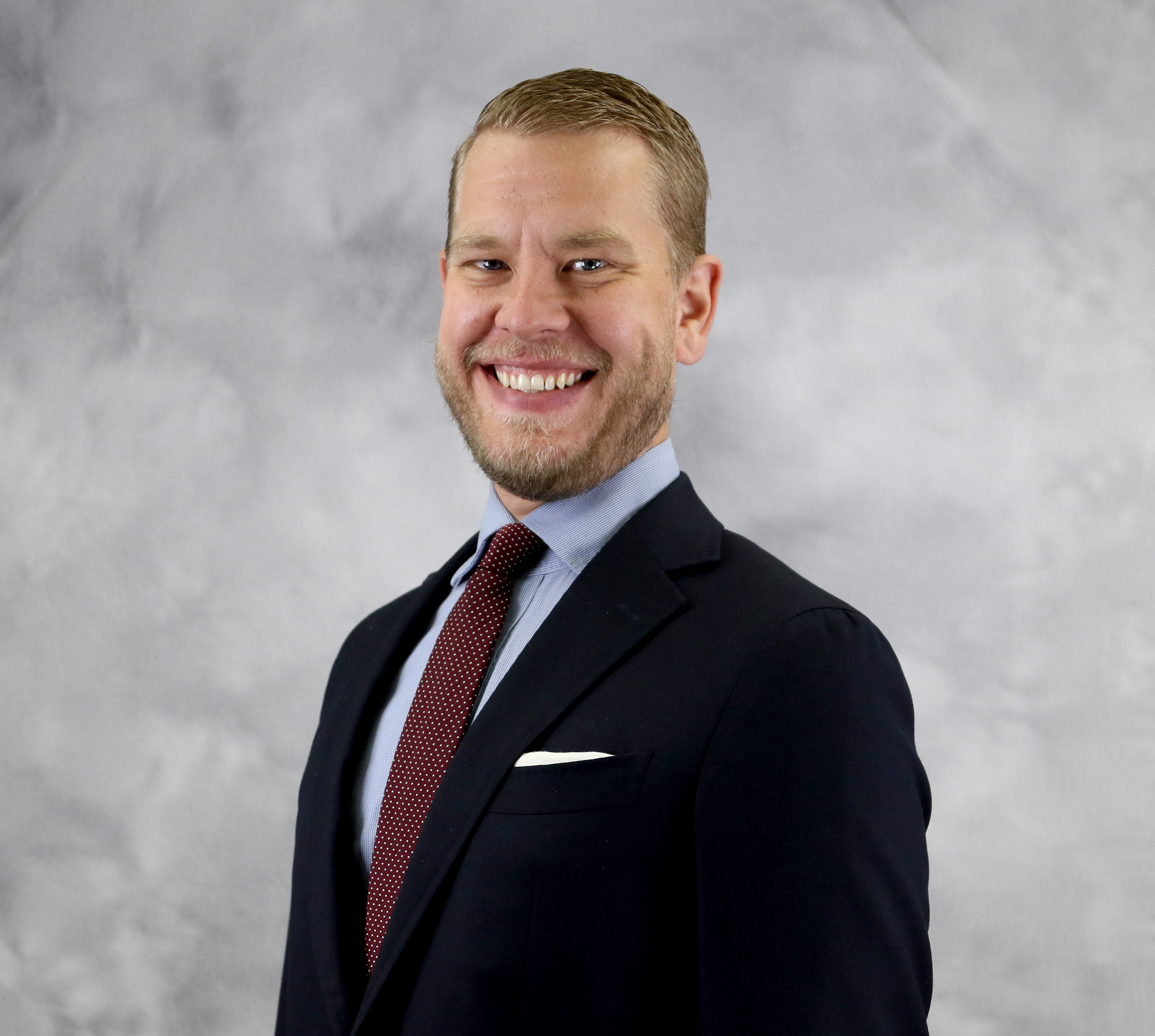Curiosity on Campus: Extending Hospitality at a Catholic University
July 26, 2022

As a part of the Deep Differences Project in partnership with the Heterodox Academy, Interfaith America spoke with three educators about their roles on campuses across the country and how they foster curiosity in students, in and out of the classroom.
For more about the importance of curiosity and the Deep Differences Project, read What If We All Practiced More Curiosity?
Interfaith American’s Jane Ulring spoke with Aaron Voth, Director of Campus Ministry at the College of St. Benedict in St. Joseph, Minnesota.
This interview has been edited lightly for length and clarity.
Jane Ulring: I’d love to hear a little bit about where you’re located and what the campus is like.
Aaron Voth: I work at St. Benedict’s College which is a Benedictine Catholic liberal arts college in St. Joseph, Minnesota. I direct campus ministry at St. Benedict’s so that’s where my interfaith work is played out. Being at a Catholic college we have about 50 percent of students who identify as Catholic. This means that 50 percent of students don’t identify as Catholic, so what are we as a department doing to identify and journey along those students to develop their spirituality while they’re here at our college? That’s where our interest with Interfaith America comes in.
JU: What does the word curiosity mean for you when partnered with interfaith work, and how do you see that playing a role in your chaplaincy on campus?
AV: We try to ask those questions of “what is your faith and background” without making assumptions, and to be curious and not assume that someone is a particular religion or practices a certain way. Asking those questions and not being afraid to have those questions about spirituality and to be curious and ask questions in respectful ways has helped our programming. People are afraid of being offensive or asking the wrong question, so I ask my students to put themselves in someone else’s shoes and consider what it feels like to be asked to speak on their background and experiences. Usually, it feels good to be seen and known and have someone be interested in what you believe. If someone asks the wrong question out of ignorance they usually do it with good intentions, and you would probably be gracious and understanding, so why wouldn’t someone else? We’re trying to be welcoming and hospitable and come to an understanding about our true selves. Curiosity creates a space where people are unafraid to ask questions and learn more about each other.
JU: Can you tell me about the barriers you’ve experienced to cultivating curiosity and what creating that space was like? Is it easy to have a curious interaction with students? Why or why not?
AV: For one thing people are nervous having those conversations because they aren’t accustomed to it. I try to remind students and colleges that in the last couple of years, there’s been a strong and needed focus on diversity, equity, inclusion, and justice. When you think about who a person is and how they identify, for so many people, religion is central to how they identify and to that diversity. It’s essential to celebrate and recognize and hold space for diverse religious experiences on our campus. The difficulty lies in that people just don’t think that way; that’s not at the top of their mind.
When a lot of people think about diversity, their mind goes to race, so trying to keep religious diversity at the forefront of the conversation has been a big part of my role. Training my students to feel comfortable facilitating those conversations has also been a challenge. You do that by getting them to feel comfortable sharing their own stories, and I find that a lot of students come to college and say, “I was raised blank.” But now they’re trying to figure out what that means for them as an independent adult … so trying to help them feel comfortable with where they’re at in their faith journey. People are where they are. Helping them feel comfortable sharing that and helping them feel comfortable asking others questions to share where they are is a big part of my role.
The other challenge is doing that from our Catholic Benedictine identity as an institution. When we talk about these Benedictine values we talk about hospitality, and awareness of God, and respect for people. What does that mean? And are we actually practicing that for everyone and not just Catholic Christian persons? Are we actually being hospitable to every student? We can do this work because of our Catholic heritage, not in spite of it — the challenging work of trying to have conversations where you can separate a person or group of people from an instruction. There’s lots of people who rightly get defensive when they hear the words “Catholic church,” because the church has done some things they aren’t proud of. Most institutions have done things they shouldn’t have, religious or governmental. Helping our community understand it’s okay to wrestle with our history while charting a new path forward that doesn’t betray what has brought us here.
JU: What rises from me is that part of practicing curiosity is being vulnerable and turning inward. What is your experience in what blocks students and institutions from being self-introspective? What are the ways that you have opened people up to that process?
AV: Last summer, it became publicly known that at one point in its history both the monastery at St. Ben’s and the monastery at St. John’s operated industrial boarding schools for native Indigenous children in the community on behalf of the U.S. government. Hence, we are heavily involved in some of those reconciliation and reparation conversations that many Catholic institutions are across America and probably across the world. My interfaith students and I began some work with our Indigenous student organization in trying to create space for conversations about Indigenous spirituality and what that looks like, and how that interacts with Catholicism. We ended up sponsoring an event in November during Indigenous People’s Month where we invited a member of the White Earth tribe to come to campus and have a conversation about the boarding schools and the history of them in the U.S. We also had a representative from the monastery on stage to discuss how they were involved and what they were trying to accomplish. It was an incredible event and as far as we could tell one of the first ones like it. The monastery had issued a public apology a few weeks before the event to the White Earth nation, and they were the first Catholic group to do something like that as well. It felt like we were on the forefront of this nationwide discussion about reconciliation, our history, and how to bring healing to our communities.
JU: How as a Catholic institution do you remain steadfast in your Catholic roots while being open to change? I think that’s one of the fears in interfaith work – if I really engage, how do I maintain my own identity? How have you walked with students along that path?
AV: I think for me personally I found that any time I either have had a conversation or entered a relationship with someone who holds a different belief system from my own — be it political, religion, or worldview – every time I do that, somehow it always ends up leaving me feeling more secure in my own beliefs. Not to say I haven’t changed beliefs over time,; my views have evolved over the years.
Encountering others and explaining your beliefs and actions to others helps us wrestle with those questions of why believe what we do in a really healthy way. I encourage my students to not be afraid of those conversations, and I tell them you learn a lot more about yourself by being around people who are different from you.
I think if we want to stay true to our roots, the initial founding fathers and sisters of the monasteries came to Minnesota from Germany to minister to migrants and to minister to people who aren’t native to Minnesota and help them grow and prosper in this place.
If we are being true to our founding vision, it’s to create a space where people can be seen and known and loved and prosper and grow here in central Minnesota.
Share
Related Articles
Higher Education
American Civic Life
Young Black Catholics Are Still Here and Flourishing More Than Their Peers
Higher Education
At Top Universities, Institutes of Catholic Thought Focus on Science and Religion

Aaron Voth
Aaron Voth is the Director of Campus Ministry at the College of St. Benedict in St. Joseph, Minnesota. As a Protestant Christian who has been involved with Catholic Higher Education as a student, faculty member, and administrator for 20 years, Aaron knows first-hand the rich opportunities for learning and growth that come from interfaith dialogue and collaboration.



